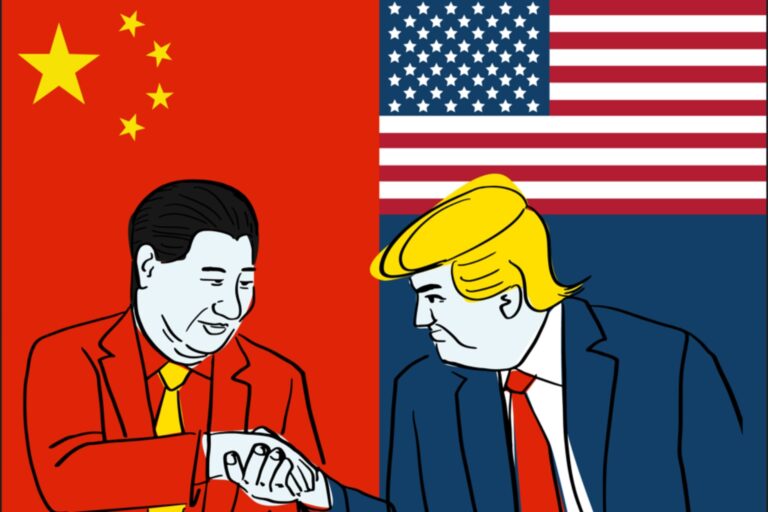Last month, I had the pleasure of spending a couple weeks in London and Oxford. Much of the trip was devoted to speaking on matters related to my day job at The Heritage Foundation and to meetings with friends and colleagues in various think-tanks, agencies, and embassies. But I did take a few hours to work in Britain’s superbly-efficient National Archives in Kew, and in the even more superb setting of Duke Humphrey’s Library (which doubled as the Hogwarts library in one of the Harry Potter films) in Oxford’s Bodleian Library, in both cases for a forthcoming book on the rise of Euroscepticism in post-war Britain.
It was with a sigh, then, that I returned to my office and found the Economist, in its April 14 number, addressing what it described as “a new argument” from the Eurosceptics: that Europe (or rather, the EU – the regularity with which the two are confused is revealing, if tiresome) is after all only a smallish continent, and that in an era of Euro-stasis, if not Euro-collapse, Britain could do much better as a new Cutty Sark, sailing the globe in pursuit of trade. The Economist regards this as more or less palpable nonsense, on the grounds that Britain is European by geography and that the EU’s rule-making will affect Britain whether it is in or out.
That is true, but it is not an answer. After all, the EU’s rules also affect Switzerland, and yet Switzerland remains defiantly and prosperously outside of the union. The argument that the Economist was addressing is actually far from new: it was central to the opposition to Britain’s initial application to the European Economic Community, as it then was, in 1961, an application that was vetoed by General Charles de Gaulle in 1963. I’ve been reading government files and private papers from the first application era for about two decades, and it continues to astonish me how everything in the story that is old is new again. Maybe it shouldn’t: when I was looking for a topic to focus on when I started graduate school in the early 1990s, I picked Britain and Europe because I thought it was going to stay relevant. How right I was.
Then as now, the Economist was a cheerleader for British membership in the EU. As now, defenders of British membership played up the economic logic of trading with Europe – and there is of course logic in that – and did their best to ignore the more controversial question of the erosion of Britain’s sovereignty. Also familiar is the portrayal of Europe – or the EU, rather – as a matter of destiny, a kind of ‘end of history’ that will answer every one of Britain’s post-imperial questions. In the early 1960s, the extent to which E.E.C. membership appealed to the true believers was astonishing. It would, simultaneously, give Britain a new leadership role in the world, revive its industries, end the wars of Europe, ensure the unity of the West in the Cold War, fund the development the Commonwealth, and be – in a phrase that the British government of the day liked to use – a ‘grand adventure’ to rival that of the Empire.
Well, if arguing over cod quotas is an adventure, then the EU is Six Flags on steroids. These days, that argument looks a bit tattered, and enthusiasts like the Economist have wisely toned it down, replacing the theory that being part of the EU’s bureaucracy will be fun with the argument that participating in it is a stern and unavoidable duty. But one of the lessons I take away from the early Euro-enthusiasm is that the arguments for British membership were never nearly as strong as they were cracked up to be. No policy can contribute to solving every problem, as E.E.C. membership claimed to do, and policies that pretend to do so are answers in search of a question. Arguments about Britain’s European destiny are so much fluff: there is no end of history, and if there is, the EU is not it.
It’s a double irony of history that the leaders of the ‘it’s a big world’ school of Euroscepticism in the early 1960s came mostly from two camps: free trading liberals, and the pro-Commonwealth Labour Party, which viewed E.E.C. membership as incompatible with Britain’s transformed imperial role. Strange but true: the last, most convinced, and most important friends of the British Empire were to be found on the left of the British political spectrum, not the right. Stranger is the fact that Britain’s Liberal Democrats, the party descendants of those free trading liberals, are today the most pro-EU party in Britain. The Conservative Eurosceptics of the 1960s were a more varied lot – a couple were protectionists, a few were imperialists of the old school, many more had a loyalty to the ‘Old Commonwealth’ of Canada, Australia, and New Zealand, and about as many simply couldn’t bear the suspicion that ‘joining Europe’ meant a loss of Parliamentary sovereignty.
The government of the day denied that, but they were lying – and as a few wiser heads at the time realized it would, the steady revelation of that lie over the following decades made Euroscepticism in Britain far more potent than it might otherwise have been. When the Economist writes that “Britain’s EU membership is not an affair of the heart but an accounting exercise,” it’s continuing a long-standing effort to dodge the political question. But even from an accounting point of view, EU membership is of intensely debatable merit: when Ian Milne surveyed the question for Civitas in 2004, he found that the financial balance was “unequivocally negative.”
The reasons why are numerous, but two are particularly relevant. First, like most nations, Britain does the vast majority of its business with itself – but it would have to impose EU standards on its entire economy, not just the part that is exported to the continent. And second – and here is an imperial legacy – Britain reliably runs a surplus on its trade in services, and a deficit on its trade in goods, making its exports as a whole skewed towards services. Thus, while Britain certainly has a lot to gain from free trade in Europe, the argument that 50 percent of British exports go to Europe means a lot less for it than a similar statistic would for a country that traded more heavily in visible goods. The image of the Cutty Sark is misleading; as historians of the British Empire have come to recognize, the City of London and the pound sterling are imperial symbols of as much potency as the mills of Manchester. It’s no surprise that the breaking point for the not particularly Eurosceptic Prime Minister Cameron in last December’s Euro crisis was the fate of the City, not Britain’s trade with the continent, or even the Common Agricultural Policy.
Today’s Euroscepticism has dropped quite a few of the appeals of the early 1960s – there is not much protectionism left in Britain, and for better or worse, limited interest in the Commonwealth – but it’s retained the more durable elements of those protests, a core that stems ultimately from Britain’s unique history: an affection for Parliamentary sovereignty, and the reality that Britain’s economy is simply not like those of the continent. What’s particularly fun for someone who’s spent a few decades looking at the history of this question is to turn the page on the Economist’s rejection of the Cutty Sark model and chance across a couple other articles. In the same issue, its regular Charlemagne column worries that the expansion of the EU’s authority “raises profound concerns about its legitimacy” and inquires brightly, as though the question has never come up before, “has anyone asked Europeans how much sovereignty they are ready to surrender to save the Euro?” Well, yes, they have, repeatedly – and when Europeans have answered “not much,” integration has proceeded anyhow. In a study of the potential costs of Scottish independence, the Economist finds that the financial risks are high, but concludes that “if Scots really want independence for political or cultural reasons, they should go for it. National pride is impossible to price.”
That’s curious – for some reason, I thought that membership of a political union was “not an affair of the heart but an accounting exercise.” Apparently, that dictum doesn’t apply to the United Kingdom; only to the European Union.
Written by Professor Ted Bromund
Ted R. Bromund studies and writes on British foreign and security policies and Anglo-American relations as senior research fellow in The Margaret Thatcher Center for Freedom. Bromund joined Heritage in 2008 after a decade as Yale University’s associate director of International Security Studies, a research and teaching center dedicated to diplomatic, military and strategic history. Media outlets that have interviewed Bromund or cited his work include BBC News, CBS News, Fox News, One News Now and NewLedger.com.



